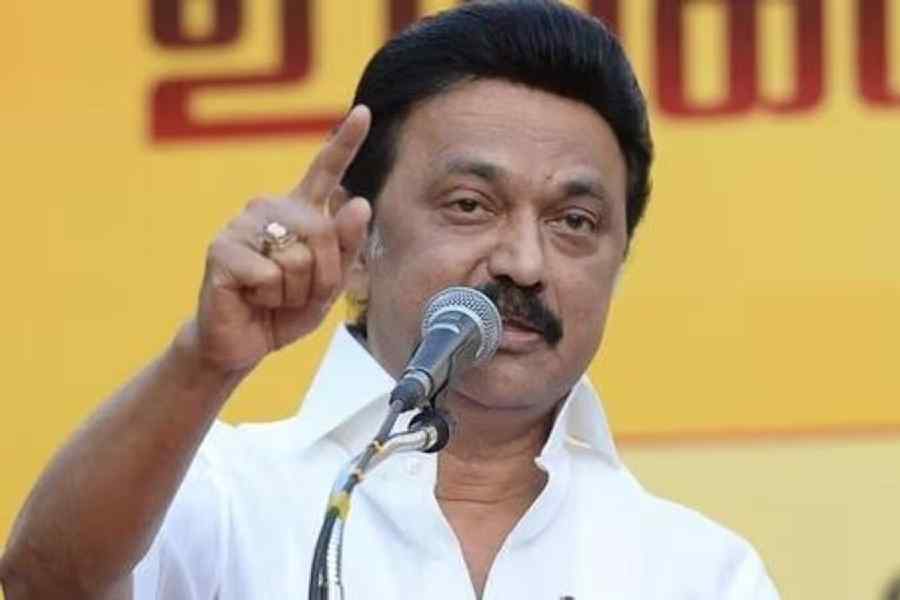Tamil Nadu Chief Minister M K Stalin on Tuesday extended full support to his Kerala counterpart Pinarayi Vijayan on preserving fiscal federalism and accused the Centre of restricting states’ borrowing space by misusing its powers under article 293 of the Constitution.
Prior consent from the union government, mandated by this section, has been converted into a restrictive tool to limit deficit financing beyond the limits prescribed by the State Fiscal Responsibility and Budget Management Act.
“As a result, the fundamental principle of fiscal federalism envisioned by the Constitution makers is under grave threat,” Stalin said in a letter addressed to Vijayan.
“I want to express my sincere appreciation for your efforts in drawing the attention of the Supreme Court to the pressing issue of the Union Government’s attempts to stifle State Governments by exercising arbitrary and discriminatory control over their deficit financing,” he said in the letter, a copy of which was made available to the media here.
Although this has been happening for quite some time, the situation has rapidly deteriorated in the last few years and there was a clear consensus emerging amongst progressive state governments that such indirect control over state finances needs to be done away with. “As rightly pointed out by you, the subject of Public Debt for financing the public expenditure of States is within the exclusive purview of the State Legislature as per the Constitution of India,” the CM said.
However, the central government has been misusing its powers under article 293 of the Constitution to restrict the borrowing space of the States.
In the case of Tamil Nadu also, such steps have caused a significant dent in mobilisation of funds for State initiatives. For instance: for 2023-24 year, the Centre has fixed the GSDP growth for calculating the net borrowing ceiling at a mere 8 percent, despite the state consistently achieving around 15 percent nominal growth in the last two years. This resulted in a loss of Rs 6,000 crore in borrowing space in the current year.
The mandatory condition of funding gross losses of State DISCOMs under the guidelines for additional borrowing for power sector reforms has forced Tamil Nadu to provide Rs 17,111 crore to TANGEDCO in the current year, thus severely constraining TN fiscal space this year. It was likely to affect the state in the future also, he said.
The Chief Minister cited the intentional delay in approving the Chennai Metro Rail Phase-II project as a Central Sector project, as the third point in case, which has resulted in the entire debt of Rs 33,594 crore for the project being included within the state's net borrowing ceiling.
“These discriminatory and unconstitutional attempts are being pushed by the Union Government at a time when the fiscal autonomy of the States has already been seriously curtailed by the implementation of GST. A revenue shortfall of Rs 20,000 crore per annum is being faced by Tamil Nadu government in comparison to the pre-GST regime and the Union has been refusing to extend the compensation regime,” Stalin said.
In summary, the Centre's intent seemed to be aimed at crippling states’ ability to raise resources and fund crucial developmental initiatives as per their policy priorities, he said and added that this trend needs to be resisted by like-minded progressive states.
“I stand in full support of the Government of Kerala's commitment to preserving fiscal federalism,” Stalin said in the letter and stressed that Tamil Nadu government was ready to extend its cooperation in this regard and looked forward to collaborate and synchronise its efforts to address this crucial challenge.
Except for the headline, this story has not been edited by The Telegraph Online staff and has been published from a syndicated feed.











